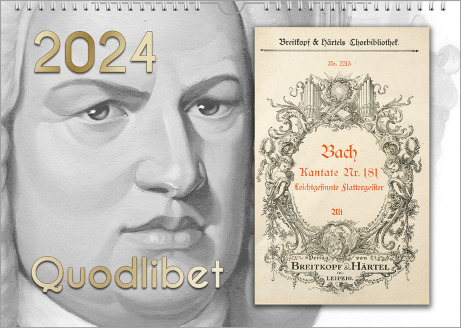Veit Bach Real Short, Veit Bach Real Quick: This Is how You Spoil Your Reading Fun. Seriously!
This page on my "Bach on Bach" website reflects – from summer 2021 – the state of our Veit Bach genealogy research (... before 1619 ...) until 2015 and concludes it finally! If you are "only" interested in the first four generations of this early, unmusical Bache "to the point", then please just continue reading on this page below. However, with it you kill the complete excitement, if you "visit" here for entertainment: It is then as if you always read first in a book, how everything "ends", thus consume the last pages at the very beginning of your reading. ––
An extremely extensive information about the search for Veit Bach's origin, in three phases to the goal, is what you can read – as pure entertainment – with one click here. It reflects the state of knowledge until 2015 and serves today only the "preservation of my research": However, it is extremely exciting to read and contains many, really many historical documents about this intensive research. Important: In 2015 I thought I had reached my goal. But as it turned out in 2021, it came even better! What I could not know in 2015. ––
This has never happened to you before? That an author advises you not to read a specially designed – but short – page on exactly the topic that interests you? Here on this website many things are different and so you are perhaps already used to my surprises.
Accordingly, this section serves exclusively to hide the exciting final result, which arises genealogically on the search for Johann Sebastian Bach's very early ancestors, still a little before your eyes. Because if you explore the result here, then the reading of the detailed history about Veit Bach and his ancestors is not so much fun anymore. ––
.
.
I
Hans Bach "and 1504"
... discovered by the most successful genealogists in our time ( ... meant is the second half of the 20th century), the "team" Karl-Helmuth Abendroth / Knut Kreuch / Prof. Dr. Günther Kraft and Dr. Annemarie Niemeyer in Thuringia. They assumed that Hans Bach was born around 1481. Where this happened is not documented. He died in 1563, in Gräfenroda. We do not want to address this genealogical level yet, maybe from 2030. But: This Hans Bach moved, documented, 1504 to Gräfenroda. This has probably led to the term (... analogously and written down in another document ...) ... "... the well-known Bach family of 1504" (... in Gräfenroda). The year 1504, mentioned in the "Kirchenbuße", is therefore neither – as one could also assume – a date of birth, nor a date of marriage or, with the birth of the first child, a date of the foundation of a family. Rather, the term in the "church penance" (... probably) refers to the year of this family's move to the then community of Gräfenroda. Please note that in 2021 – for only very few people on earth – a sensation happened: Together we succeeded in establishing that Veit Bach actually did not immigrate or migrate back from Ungernland, but from Ungerndorf (... both terms are supposed not be translated). Interested? Here are the details!
I
Hans Veit Bach, the Emigrant
... He was born in 1513 and is documented as the son of the above-mentioned Hans Bach. He has lived first (... but perhaps also exclusively) in Gräfenroda. He is the emigrant from Gräfenroda to Bohemia. Quite considerably Prof. Dr. Günther Kraft succeeded as the first and only one to sensitize us to the topic Bohemia. Against the mainstream of all Bach biographers and Bach genealogists: According to an entry of the pastor in Gräfenroda at that time, Hans Veit Bach lived at least a part of his life in Gräfenroda. As an immigrant he arrived in Bohemia! This is confirmed by the rector and episcopate of the monastery and seminary of Swjnow, Bohemia ... in our time (... the 21st century). A documented date and place of death of this Hans Veit Bach are unknown. A challenge is the fact that dozens of experts and less careful genealogists all over the world and through the centuries also called him Hans, Veit Hans, Hanns, Hans the Younger, Hans the Elder, Hanß or also Hannß.
I
Veit Bach, Born in Bohemia
... born 1551 in Janegg/Bohemia/Czech Republic. He is the Veit Bach who migrated further south at an unknown time. Because Veit Bach, if it is this person born in Janegg, would have been about 68 years old, there is already a first certain probability that there was a son (... then also named Veit), who later migrated back to Thuringia. Explicitly I am not interested in which siblings were also born there or nearby, in Moldavia, who survived and who later moved on. For Renate, my wife, it is quite different. But she will probably not research that before the year 2025. That this Veit the Elder migrated further south at some point becomes clear with the discovery of a council record that lists him as living in Hanfthal near Laa on the Thaya in Austria in 1592. However, because Veit Bach is listed overlapping in two authentic documents (... a Wechmar document mentions Veit Bach, who died in 1619, living in Wechmar at that time), there must have been a second Veit Bach.
I
Veit (Vitus) Bach, Died in Wechmar 1619
In the meantime it is clear by two entries in historical documents that there were two Bach generations between Hans Veit Bach, the emigrant and Johannes Bach, thus "Hans, the minstrel" (... Hans the Spielmann), not only one. Because the entries date in such a way that Veit could have been only here or there: thus already in Wechmar or still in Ungern(dorf). Ungerndorf? Correct, Veit Bach the younger must have moved to nearby Ungerndorf after his time in Hanfthal, 30 minutes walk. Why? Because then the circle closes. We know that he lived in Hanfthal, but that he came back from Ungern (... the abbreviation of Ungerndorf in many historical documents). This results from the "origin" (... "Ursprung") of J.S. Bach and there in the first paragraph. And this is plausible even if one you are only little interested in genealogy. From this it follows that there was a Veit the older and just a Veit the younger. Age-wise both could have migrated back to Wechmar together. And nothing points now to it, which Veit it was more probable, who remained in Ungern. Although: Veit the younger had much more probably the strength for it, after all it is 111 hours of walking, that are eleven days of walking with ten hours walking each day. And if so: The genealogy does not change. Because at one period of time there was a Veit in Hanfthal and also in Wechmar. If we can assume now from the entries, quite certainly from two Bachs with the name of Veit, nevertheless the date of birth of the one and the date of death of the other remains hidden in the genealogical fog (... see above) for very probably forever. From a Veit the elder we know the date of birth and the place of birth, from Veit the returner we know the date of death and the place of death. But who is who ... that remains a probably always lasting secret.
I
Johannes Bach (Hans der Spielmann)
... it is most likely that this "Hans" Bach is the son of the above-mentioned Veit Bach: It is Johannes Bach. Now also recognized by really all Bach biographers, Bach scientists and Bach genealogists since the big bang. A Veit Bach is indeed mentioned together with his son Hans Bach in the ancient Wechmar records. "Hans the minstrel" (... the "Spielmann") is great-grandfather of Johann Sebastian Bach; born 1576 in Ungern, died 1626 in Wechmar, Thuringia.
I
Christoph Bach
... born 1613 in Wechmar, died 1661 in Arnstadt; grandfather of Johann Sebastian Bach.
I
Johann Ambrosius Bach
... born 1645 in Erfurt, died 1695 in Eisenach; father of Johann Sebastian Bach.
I
Johann Sebastian Bach
... born 1685 in Eisenach, died 1750 in Leipzig.
Anzeige
99 Music Calendars, Composers Calendars, Bach Calendars and Pipe Organ Calendars
Pipe Organ Calendar, Composers Calendars, Music Calendars and Bach Calendars: The offer of "Bach 4 You". Three sizes. 2024 + 2025. To the shop.
Music Gifts and More Music Gifts
Please support our Bach Mission ... learn more here.
End of Advertisement





